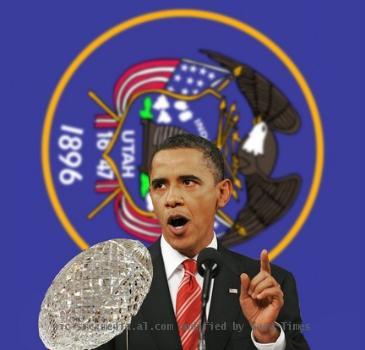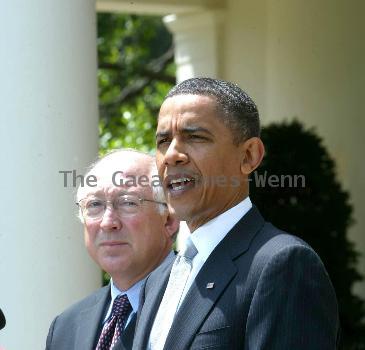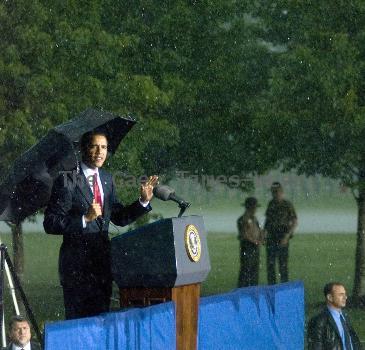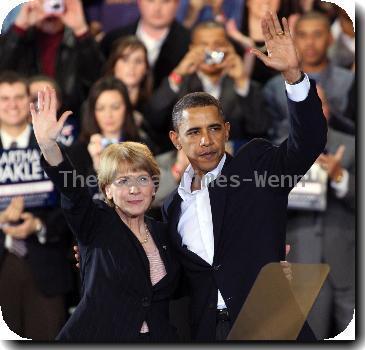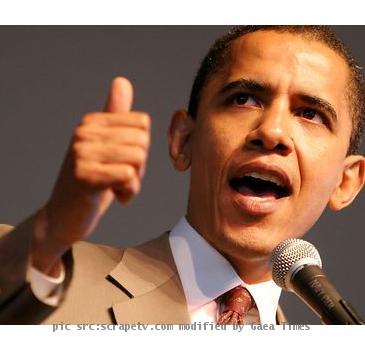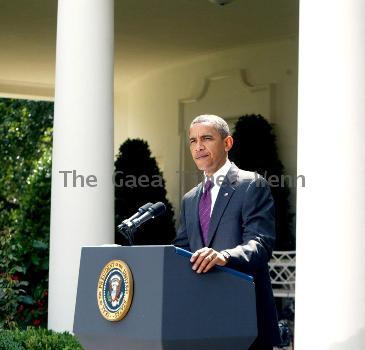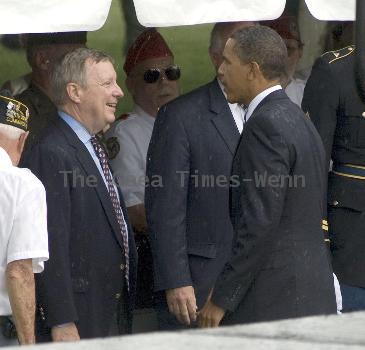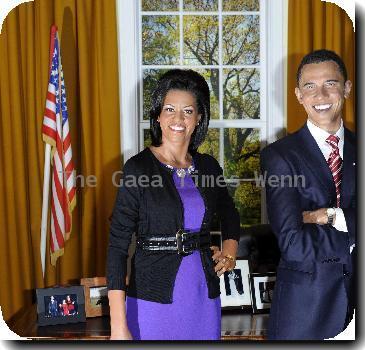American woman freed by Iran after more than a year in prison says she is grateful, humbled
By Nasser Karimi, APTuesday, September 14, 2010
American woman freed by Iran is grateful, humbled
TEHRAN, Iran — The American woman released by Iran on Tuesday after more than a year in prison said she was grateful to Iran’s president for her freedom shortly before she boarded a flight to the Gulf sultanate of Oman where her mother greeted her with a warm embrace.
Iran freed Sarah Shourd, 32, after arrangements were made to satisfy Iran’s demand for a $500,000 bail. American officials said neither the U.S. government nor the family put up the money for the bail and they thanked U.S. ally Oman, which they said had played a critical, behind-the-scenes role in securing Shourd’s release.
However, the case that has deepened strains between the U.S. and Iran was still far from resolved.
Shortly after announcing Shourd’s release, Iranian authorities said they are not considering the immediate release of the two Americans arrested with Shourd — her fiance Shane Bauer and their friend Josh Fattal. Iran has charged all three with spying, though their families say they were innocent hikers arrested in a scenic mountain area along Iran’s border with Iraq.
“I want to really offer my thanks to everyone in the world, all of the governments, all of the people, that have been involved, and especially, particularly want to address President Ahmadinejad and all of the Iranian officials, the religious leaders, and thank them for this humanitarian gesture,” Shourd told Iran’s English-language Press TV at the airport before she flew out.
“I’m grateful and I’m very humbled by this moment,” she added. “I’ve learned a lot from women in the Middle East in this part of the world and I have a lot of respect for women and the tradition that surrounds them. I just want to assure you that my commitment to truth will not change. You know, when I go back to my country and I will never say anything but the truth to media and I will not succumb to any pressure.”
Iranian President Mahmoud Ahmadinejad has said Shourd was being released on compassionate grounds because of health reasons. Her mother says she has serious medical problems, including a breast lump and precancerous cervical cells.
Shourd arrived in Oman on a private government jet after a flight of about two hours. She was greeted with an embrace from her mother and then, looking relaxed and smiling, they strolled arm-in-arm on their way out.
President Barack Obama and U.S. Secretary of State Hillary Clinton both thanked Oman for its assistance and U.S. officials said Omani negotiators were key in the release. The Omanis worked with Swiss diplomats and the Iranian judiciary to win her freedom, particularly in resolving the issue of bail, the officials said.
Oman “in recent days and weeks became a key interlocutor to help us work this case with the Iranian government,” State Department spokesman P.J. Crowley said. “And we are very grateful to the role that Oman has played.”
Tehran’s chief prosecutor Abbas Jafari Dowlatabadi said a $500,000 bail had been paid to Iran’s Bank Melli in Muscat, Oman but did not say who paid it. A U.S. official said neither the U.S. government nor the families of the hikers had paid the bail, but could not say who else might have paid it. The official spoke on condition of anonymity because of the sensitivity of the issue.
Crowley said he could not say whether any money had changed hands in winning Shourd’s release, but noted that “arrangements were made that satisfied Iranian requirements under their judicial system.” At the same time, he said the U.S. government had no information to suggest that any U.S. or international sanctions imposed on Iran over its nuclear program had been violated in making those arrangements.
“The United States did not pay anything for her release. As you know, the government of Iran, through their judicial process, had specific requirements for her release, and arrangements were made that satisfied those requirements,” Crowley said.
“Someone provided sufficient assurances to the government of Iran that satisfied, you know, their stipulations for release.”
Obama welcomed the release but the families of the three Americans had mixed emotions.
“All of our families are relieved and overjoyed that Sarah has at last been released but we’re also heartbroken that Shane and Josh are still being denied their freedom for no just cause,” they said in a statement.
“We applaud the Iranian authorities for showing compassion in Sarah’s case and again call on them to do the only right thing and release Shane and Josh immediately,” the families said. “They deserve to come home too. Iran has no grounds to deprive them of their liberty a moment longer.”
Obama said all Americans are celebrating Shourd’s long-awaited return home.
“I am very pleased that Sarah Shourd has been released by the Iranian government, and will soon be united with her family,” Obama said in a statement
Shourd’s mother Nora said she has hoped and prayed for this moment for 410 days.
“Sarah has had a long and difficult detainment and I am going to make sure that she now gets the care and attention she needs and the time and space to recover,” she said. “I can only imagine how bittersweet her freedom must be for her, leaving Shane and Josh behind.”
The release followed days of conflicting statements by Iranian authorities on whether she would be let go. The decision got mired in internal political feuds among Iran’s leadership and questions over whether the family could raise the bail money and if it did, would the payment violate sanctions against Iran.
Shortly after Iranian state media announced Shourd’s release, the country’s hardline judiciary said the “pretrial detention” of Bauer and Fattal had been extended for two more months. Shourd and Bauer are engaged to be married.
“The judge issued the release order and Ms. Shourd was simply set free and she can leave Iran if she wants to,” he told state-run English-language Press TV. He said the cases of the two American men, both 28, will be sent to the revolutionary court and “there is no talk of releasing those two right now.”
Iran indicted the three Americans on spy-related charges on Sunday and the prosecutor’s statement suggested the men would face trials while proceedings against Shourd could be held in absentia.
The U.S. broke off ties with Iran after the 1979 Islamic Revolution, and Switzerland handles U.S. interests in Iran.
Shourd, who grew up in Los Angeles, Bauer, who grew up in Onamia, Minn., and Fattal, who grew up in Elkins Park, Pa., were detained along the Iran-Iraq border on July 31, 2009 and accused of illegally crossing the border and spying in a case that has deepened tensions with Washington. Their families say they were hiking in Iraq’s scenic north, and that if they crossed the border, they did so unwittingly.
The stage was set for Shourd’s release last week when Ahmadinejad said he intervened as a gesture of Islamic compassion at the end of the holy month of Ramadan. However, the judiciary quickly upstaged the president by saying it was in charge of the case and would set the rules — in the form of the largest known bail for any high-profile Westerner jailed in the past year.
Shortly after judicial officials announced the bail on Sunday, Shourd’s lawyer predicted she could walk free in “two or three days.”
Moves to release Shourd have been accompanied by political jockeying in Iran between Ahmadinejad and his more conservative rivals.
On Monday, Shourd’s family asked the Iranians to drop or lower the demanded sum because they were having difficulty raising the money.
U.S. sanctions put blanket restrictions on transactions with Iran’s main state bank, Bank Melli, which has also been the channel for past bail payments to Iranian courts by foreign detainees. Washington accuses the bank of helping fund Iran’s ballistic missile development and its nuclear program, which the U.S. says could eventually lead to atomic weapons. Iran says it only seeks peaceful nuclear reactors for energy.
U.N. sanctions also call on governments to block transactions with Melli and another major Iranian financial institution, Bank Saderat, if there are “reasonable grounds” they could contribute to Iran’s nuclear activities.
Associated Press Writers Gretchen Ehlke in Milwaukee, Matthew Lee in Washington, D.C. and Amy Forliti in Minneapolis, Minnesota contributed to this report.
Tags: Barack Obama, District Of Columbia, Foreign Policy, Hillary Clinton, Iran, Iraq, Middle East, Muscat, North America, Oman, Tehran, United States
